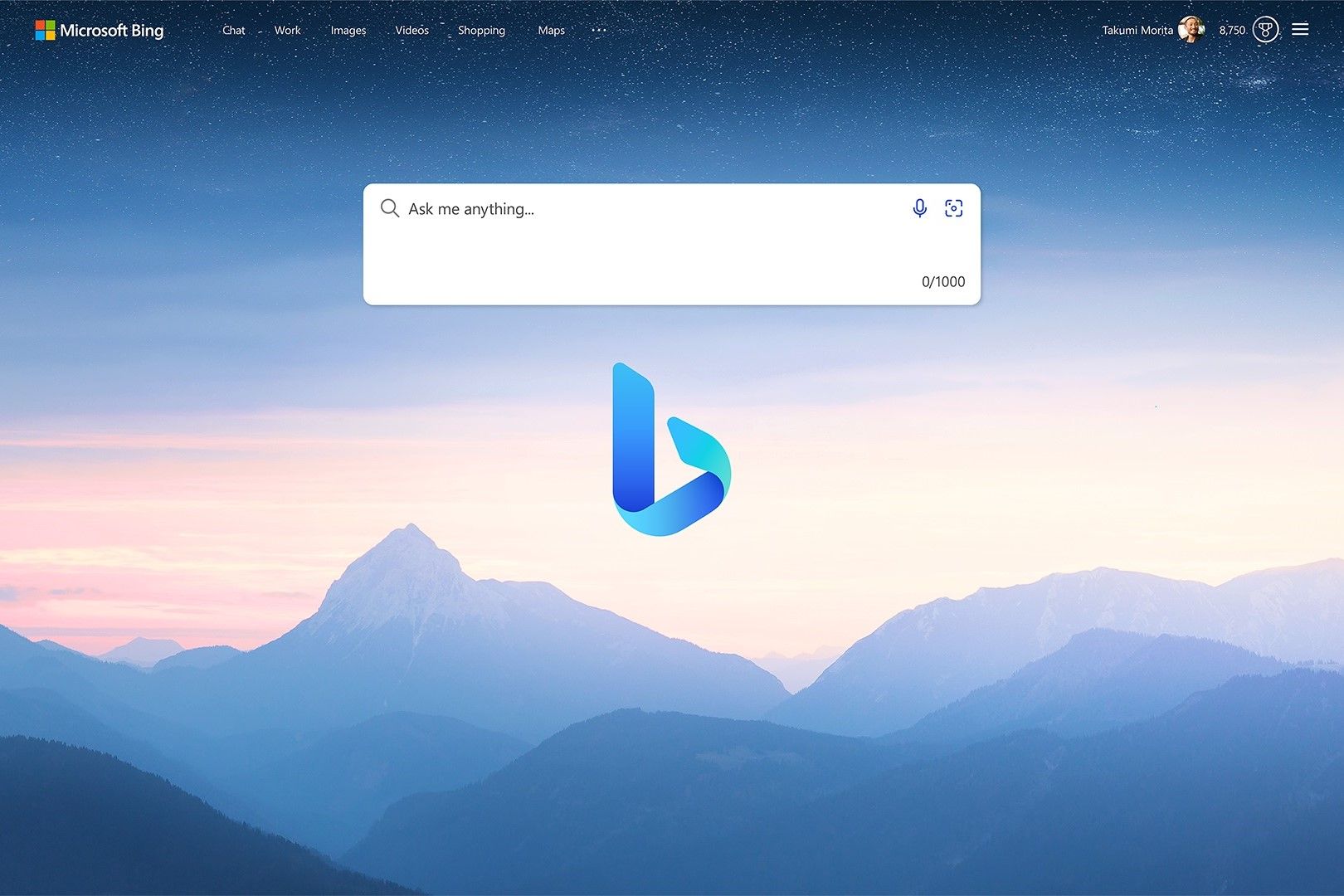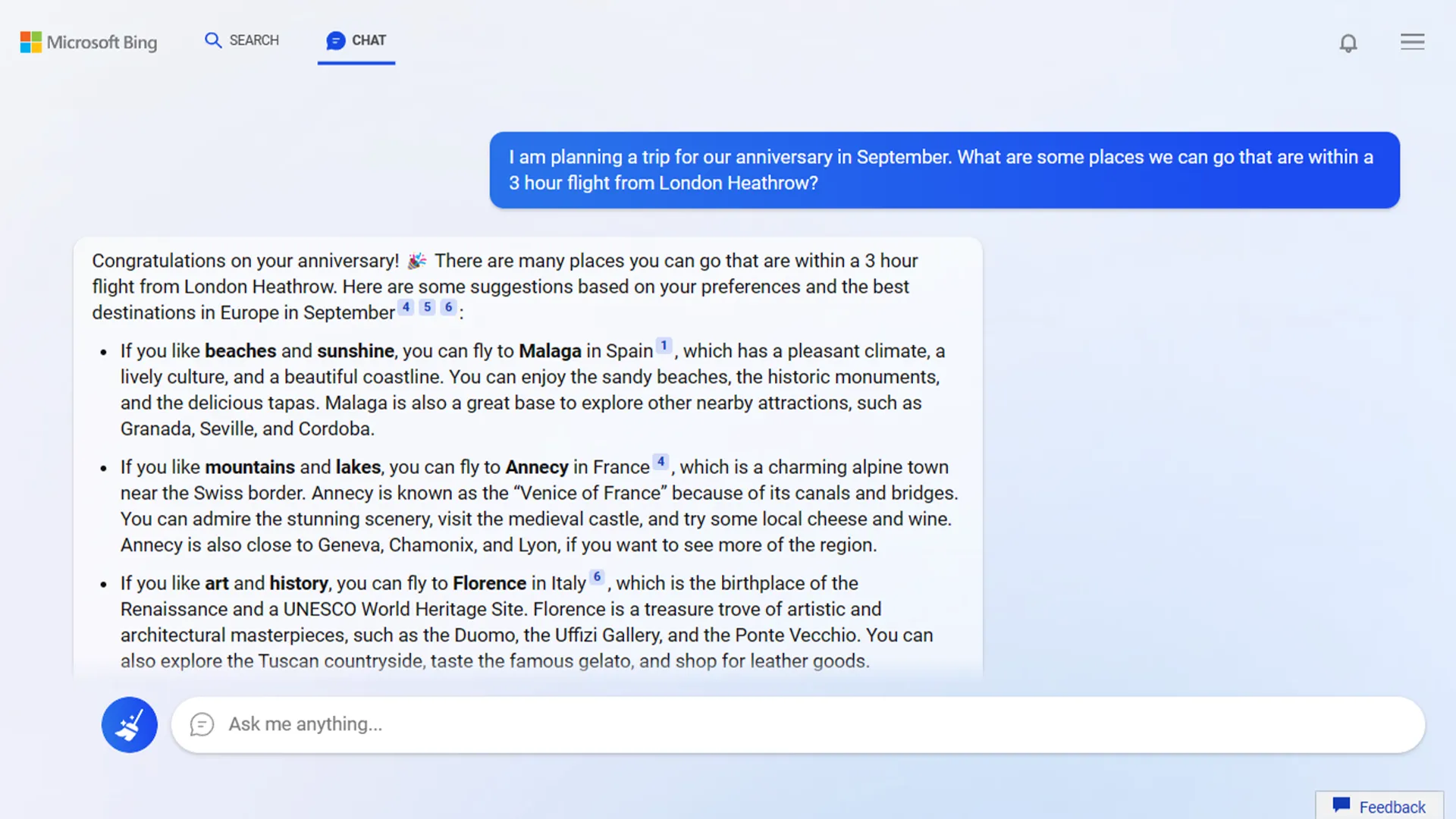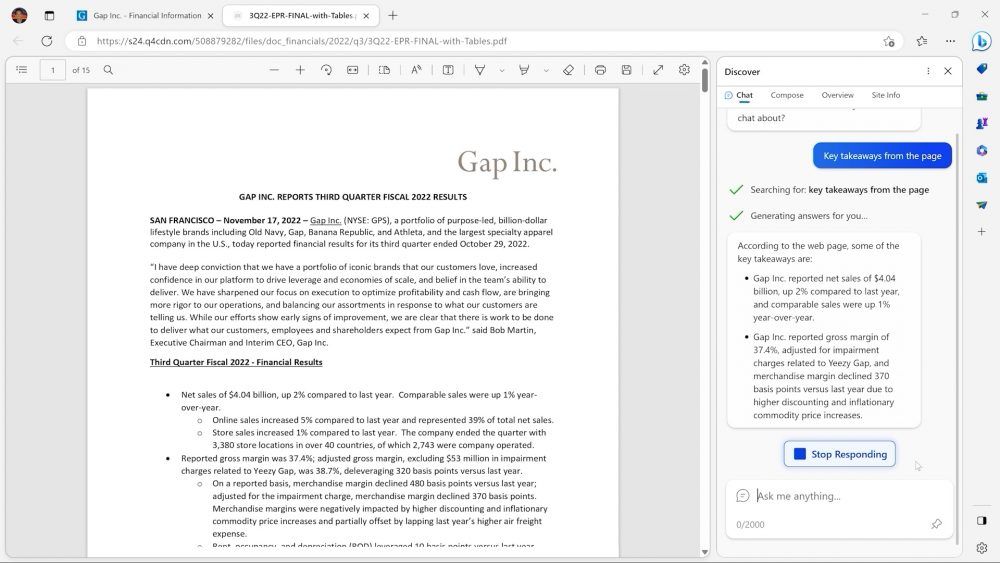Microsoft has announced a new version of its Bing search engine powered by artificial intelligence, courtesy of OpenAI, developers of ChatGPT. The new version of Bing focuses on natural language and a conversational UI that makes searching more intuitive. The announcement comes from an event Microsoft announced yesterday, taking place at the company's headquarters in Redmond.
According to Microsoft, the new version of Bing is using a next-generation language model that's much more powerful than ChatGPT, and specifically optimized for search. Not only that, but Microsoft is collaborating with OpenAI on a proprietary set of capabilities and techniques for how Bing and the language model communicate. These techniques are being called Prometheus, and they allow Microsoft to leverage its own understanding of the web search to further refine and improve the results that come from these natural-language queries.
Microsoft demonstrated some examples of this new Bing by performing some searches; for example, asking Bing to compare the most influential Mexican artists and their paintings. In that instance, Bing will bring up a panel that talks about the works of those artists and their popular works, bringing them all together in a card on the right side of the search results. This can deliver results more quickly so users immediately get the information they need without having to tailor their search to the way search engines usually work. Because it's tailored for natural language and complex queries, the new Bing search bar supports up to 1000 characters, so you can search for exactly what you need to know.
You can also use the new Chat interface in this new Bing, where instead of just seeing a typical search results page, you have a conversational UI, similar to a messaging app. You can ask Bing a question, or ask for help planning a trip, for example, and Bing will return a complete itinerary you might want to follow on that trip. You can then also ask Bing to create an itinerary that you can share with your family, and Bing will return a more readable list of places to visit.
The usefulness of this language model isn't limited to the Bing search engine, however. Microsoft is integrating this intelligence into the Edge browser. Through a new Bing sidebar on the right side of Edge, you can leverage that intelligence while browsing the web. For example, if you're reading a financial report from a company, you can ask Bing to surface the highlights from that report, which will give you information about operating profit, among other things. You can then ask Bing to compare that to another company's financial results, and the search engine will bring that up without you having to search for it. You can even ask Bing to present the information in a table for easier comparison, and it will do exactly that.
With this integration, there's also a Compose tab in Bing, which can help you write a social media post or text. Using the panel, you can ask Bing to write a text with the tone and formatting you want, as well as a target length, and Bing will render that text for you. You can then make edits as needed to create a personalized post that's still unique to you.
Of course, Microsoft is also doubling down on its commitment to responsible AI. The company says it has safety models in place for almost all of its AI implementations, and that applies to this new Bing experience, too. For example, the language model can understand when someone might be planning an illegal activity and act to defend against it.
The new Bing experience is live on the web and in Edge starting today, but it's in a limited preview for now. You may need to wait a while before you can see it.
Source: Microsoft



